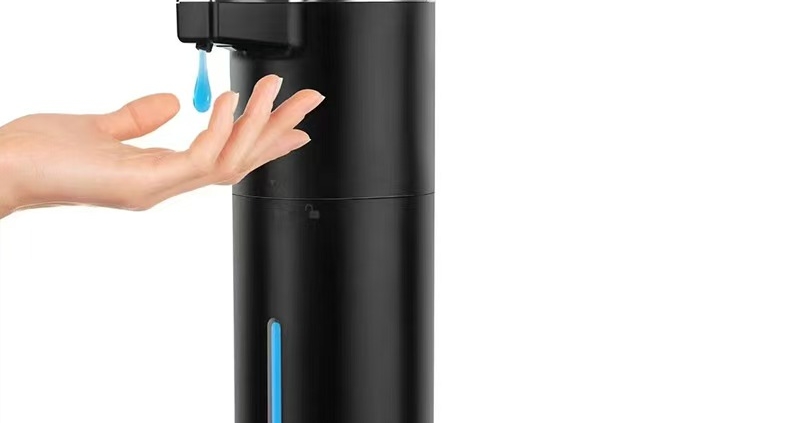For decades, the hotel soap dispenser was a simple, functional object. Its design was dictated by cost, durability, and aesthetics. But a quiet revolution is underway, driven not by market trends or guest preferences alone, but by a powerful new force: stringent global environmental regulations. Legislation like the European Union’s REACH (Registration, Evaluation, Authorisation and Restriction of Chemicals) and the United States’ TSCA (Toxic Substances Control Act) are fundamentally altering the very materials and manufacturing processes behind these ubiquitous hotel amenities, pushing the entire industry toward a more sustainable future.
This shift is more than a compliance checkbox; it’s a complex interplay of political will, chemical innovation, and strategic business adaptation that is redefining what a soap dispenser is and what it represents.
The Political Pulse: Why Now?
The strengthening of REACH and TSCA isn’t happening in a vacuum. It reflects a growing global consensus on the need to proactively manage chemical risks to human health and the environment.
In the EU, the “Safe and Sustainable by Design” framework is a core component of the European Green Deal. REACH is one of its key enforcement tools. The recent expansion of restrictions on substances like phthalates—a group of plasticizers used to make plastics like PVC flexible—is a direct result of scientific evidence linking them to endocrine disruption and ecological harm. For soap dispensers, this meant that the soft, squeezable bodies, often made with PVC and phthalates, suddenly became a liability.
Similarly, the 2016 modernization of the US TSCA empowered the Environmental Protection Agency (EPA) to more aggressively evaluate and regulate existing and new chemicals. This has led to heightened scrutiny on a wide range of substances, creating a regulatory environment that mirrors the EU’s precautionary approach.
The political background is clear: citizens and governments are demanding transparency and safety, moving from a model of cleaning up pollution to preventing it at the source. For manufacturers supplying global hotel chains, complying with the strictest standard (often REACH) is no longer optional; it’s a prerequisite for market access.
The Manufacturer’s Pivot: From Compliance to Competitive Edge
For soap dispenser producers, the initial response to these regulations was a scramble to find alternatives. This has evolved into a significant R&D and operational overhaul.
1. The Material Science Revolution:
The hunt for phthalate-free plastics led manufacturers to several promising alternatives:
-
Thermoplastic Elastomers (TPEs): These have become a leading substitute. TPEs offer a similar soft-touch feel and flexibility without requiring phthalates. They are also often recyclable, aligning with the circular economy goals that many hotels are now adopting.
-
Bio-based Plastics like Polylactic Acid (PLA): Sourced from corn starch or sugarcane, PLA represents a more radical shift. It’s biodegradable under industrial composting conditions and has a lower carbon footprint than petroleum-based plastics. The challenge has been its durability and heat resistance, prompting manufacturers to innovate with PLA blends or protective coatings to make it suitable for long-term use in a hotel bathroom.
-
Advanced Polypropylenes (PP) and Polyethylenes (PE): While traditionally used for rigid dispensers, material scientists have developed new grades of PP and PE with enhanced flexibility and a more premium feel, avoiding the need for PVC altogether.
2. Re-engineering Production and Workflows:
Adopting new materials wasn’t as simple as a one-to-one swap. TPEs and PLA process at different temperatures and flow rates than traditional plastics. This required:
-
Retooling Machinery: Injection molding machines often needed new screws, barrels, and temperature control units to handle the new materials efficiently without degrading them.
-
Reformulating Soaps: The dispenser isn’t the only product under scrutiny. The liquid inside must also comply with regulations. This has accelerated the shift towards plant-based, biodegradable soaps that are compatible with the new dispenser materials without causing corrosion or clogging.
-
Supply Chain Transparency: Manufacturers can no longer simply trust a supplier’s word. They must implement rigorous supply chain audits and demand full Material Safety Data Sheets (MSDS) for every component, from the polymer pellets to the inks used for printing.
The Ripple Effect: A More Sustainable and Strategic Hotel Amenity
The impact of these regulatory-driven changes extends far beyond the factory floor, creating a profound and lasting shift in the hotel soap dispenser industry.
1. The Rise of “Circularity”: The move towards mono-materials (like a dispenser made entirely of one type of PP) makes recycling infinitely easier. Forward-thinking manufacturers are now designing dispensers for disassembly and launching take-back programs, turning a linear “take-make-waste” model into a circular one.
2. A New Narrative for Hotels: What was once a cost center is becoming a sustainability story. Hotels can now legitimately market their bathroom amenities as “phthalate-free,” “made with bio-based materials,” and “fully REACH/TSCA compliant.” This aligns with the values of a growing segment of eco-conscious travelers and enhances the brand’s reputation for responsibility.
3. Innovation as the New Norm: The regulatory push has broken the inertia of “this is how it’s always been done.” It has forced a wave of innovation that is yielding better, safer, and more sophisticated products. We are now seeing the convergence of material science with smart technology—sensor-based dispensers made from advanced TPEs that minimize waste and maximize hygiene.
Conclusion: From Mandate to Mainstream
The journey of the hotel soap dispenser is a microcosm of a larger industrial transformation. Regulations like REACH and TSCA acted as the necessary catalyst, compelling an entire supply chain to look in the mirror and innovate.
The initial challenge of compliance has, for many, blossomed into a strategic opportunity. By embracing new materials, overhauling production lines, and prioritizing transparency, manufacturers are not just avoiding fines; they are future-proofing their businesses and providing hotels with a powerful tool to meet their own sustainability goals. The humble soap dispenser has been transformed from a simple container into a symbol of a cleaner, safer, and more responsible hospitality industry, proving that sometimes, the most powerful agent of change is a well-crafted regulation.






